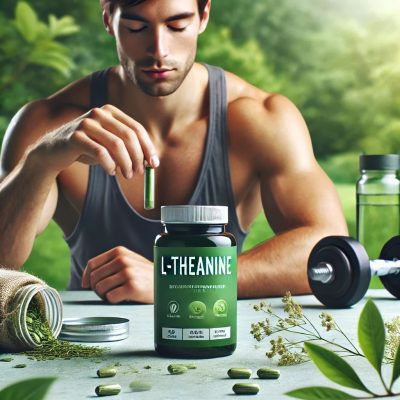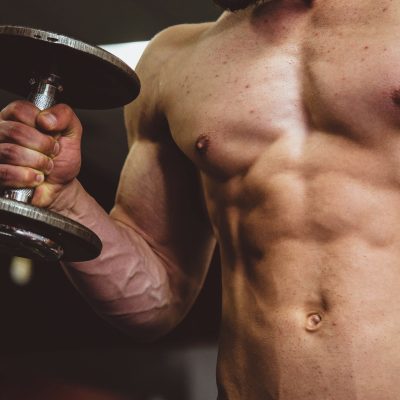Hydration is a key factor in fitness and overall health, but it’s often overlooked compared to diet and exercise. Whether you’re aiming to build muscle, improve endurance, or lose weight, staying properly hydrated plays a crucial role in your performance and recovery. But how much water should you really be drinking, especially when you’re active?
In this post, we’ll explore why hydration is so important for athletes and fitness enthusiasts, how much water you should consume daily, and tips to help you stay hydrated during your workouts.
1. Why Hydration Matters in Fitness
Water is essential for nearly every function in your body, and it’s especially important when you’re physically active. Here’s why hydration is critical for fitness:
- Regulates body temperature: During exercise, your body sweats to cool down. If you’re not hydrated, your body can’t regulate its temperature properly, which can lead to overheating and reduced performance.
- Lubricates joints: Water helps keep your joints lubricated, reducing the risk of injury and joint pain, especially during high-impact exercises like running or weightlifting.
- Transports nutrients: Water is key to delivering nutrients like oxygen and electrolytes to your muscles during exercise, helping you maintain energy levels and endurance.
- Promotes muscle recovery: Proper hydration helps flush out toxins and supports nutrient absorption, both of which are vital for muscle recovery after intense workouts.
Even slight dehydration can lead to fatigue, decreased coordination, muscle cramps, and impaired performance, making it harder to reach your fitness goals.
2. How Much Water Should You Drink?
The amount of water you need depends on several factors, including your activity level, body size, climate, and the intensity of your workouts. However, here are some general guidelines to help you stay properly hydrated:
General Hydration Guidelines
- Daily intake: The general recommendation for daily water intake is around 3.7 liters (or about 13 cups) for men and 2.7 liters (or about 9 cups) for women. This includes all fluids from both beverages and food.
- Pre-workout: Drink 16-20 ounces (about 500-600 ml) of water 2-3 hours before exercising to ensure you’re hydrated before starting your workout.
- During workouts: Aim to drink 7-10 ounces (about 200-300 ml) of water every 10-20 minutes while exercising, especially during intense or long-duration activities.
- Post-workout: After exercising, drink 16-24 ounces (about 500-700 ml) of water for every pound (0.5 kg) of body weight lost during the workout. You can weigh yourself before and after exercise to gauge how much fluid you’ve lost through sweat.
Hydration for Intense or Long Workouts
If you’re exercising for longer than an hour, especially in hot or humid conditions, you’ll need to replenish not just water but also electrolytes (like sodium and potassium) lost through sweat. In these cases:
- Sports drinks or electrolyte tablets can be helpful to replace the electrolytes and fluids your body needs.
- Coconut water is a natural option for rehydration that contains electrolytes, making it a good choice for light to moderate exercise.
3. Signs of Dehydration to Watch For
It’s important to listen to your body and watch for signs of dehydration, especially during exercise. Common symptoms of dehydration include:
- Thirst: While thirst is an obvious indicator, it’s actually a late signal that your body is already dehydrated.
- Dry mouth or chapped lips: A lack of moisture in your mouth and lips can be a sign you need more water.
- Fatigue: Dehydration can cause early fatigue during workouts, as your muscles aren’t receiving the necessary nutrients and oxygen.
- Dizziness or lightheadedness: If you feel dizzy or lightheaded during exercise, stop and rehydrate immediately.
- Dark urine: The color of your urine is a good indicator of hydration. Dark yellow or amber-colored urine can signal dehydration, while light yellow or clear urine generally means you’re well-hydrated.
4. Tips to Stay Hydrated Throughout the Day
Staying hydrated throughout the day, not just during your workouts, is key to supporting your fitness and overall health. Here are some practical tips to help you drink more water:
- Start your day with water: Drinking a glass of water as soon as you wake up helps jumpstart your metabolism and rehydrate your body after a night of sleep.
- Carry a water bottle: Keep a reusable water bottle with you at all times, whether at work, home, or the gym. This makes it easier to sip water consistently throughout the day.
- Set reminders: Use your phone or a hydration app to remind you to drink water regularly, especially if you tend to forget.
- Infuse your water: If plain water isn’t appealing, try infusing it with fruits like lemon, berries, or cucumber to make it more enjoyable.
- Eat water-rich foods: Fruits and vegetables like cucumbers, watermelon, oranges, and leafy greens contain high water content and can help boost your hydration levels.
5. Can You Drink Too Much Water?
While it’s important to stay hydrated, it’s also possible to drink too much water, which can lead to a condition called hyponatremia (low sodium levels in the blood). This typically occurs when you consume excessive amounts of water in a short period, diluting your body’s sodium levels and causing dangerous fluid imbalances.
To avoid overhydration:
- Balance water with electrolytes: If you’re drinking large amounts of water during intense or prolonged workouts, consider consuming electrolyte-enhanced beverages to maintain your body’s balance.
- Listen to your body: Focus on drinking when you’re thirsty and adjust your intake based on the intensity of your activity, the weather, and your sweat levels.
6. Hydration and Performance
Proper hydration is directly linked to athletic performance. Even mild dehydration (1-2% of body weight lost through sweat) can impair your workout by reducing endurance, strength, and overall focus. Staying hydrated helps:
- Increase endurance: Well-hydrated muscles perform better over long periods, reducing fatigue.
- Boost strength: Water supports muscle contractions and joint lubrication, which allows for better movement and strength.
- Enhance recovery: Hydration supports your body’s recovery process by aiding digestion, reducing muscle cramps, and speeding up nutrient delivery to muscles.
7. Conclusion: Hydrate for Optimal Performance
Hydration is a fundamental aspect of fitness that can have a significant impact on your performance, endurance, and recovery. Whether you’re aiming to build muscle, improve your endurance, or simply feel your best during workouts, staying properly hydrated should be a top priority.
Remember to drink consistently throughout the day, pay attention to your body’s hydration signals, and adjust your water intake based on your activity level and environment. By keeping your body hydrated, you’ll set yourself up for better workouts and faster recovery.
How do you stay hydrated during your workouts? Share your tips and tricks in the comments below!















